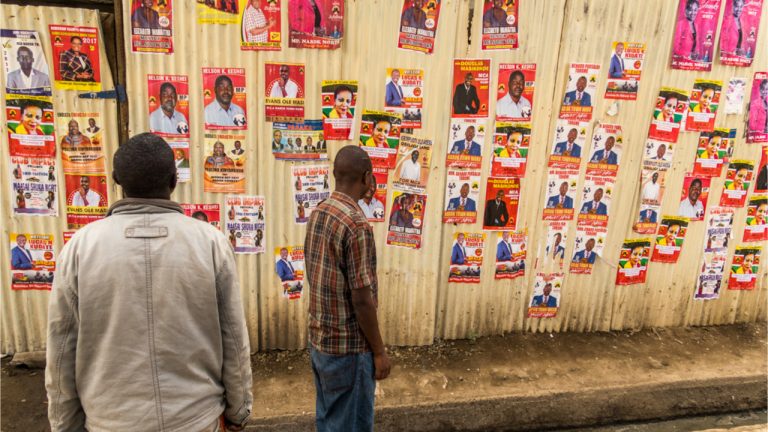
US Federal Elections Commission: Bitcoin Isn't Money
How will bitcoin impact America's campaign finance system? Corruption, anonymous donations and foreign contributions stand out as some of the currency's biggest risks. Currently, these issues are being debated by policymakers at the Federal Election Commission (FEC). A large portion of last week's FEC open meeting was taken up with a discussion about the Conservative Action Fund's (CAF) desire to start accepting bitcoins, something that chairwoman Ellen L Weintraub called "a seemingly exotic and novel issue". As a result, four advisory drafts were presented in a hearing last week by the....
Related News
Bitcoin and politics. They may soon go hand-in-hand. Financially speaking, of course. The Federal Election Commission will reportedly consider a request on Wednesday to officially allow political campaigns to accept bitcoin donations in the mid-term elections coming up. The news comes as bitcoin continues its rapid growth and more organizations are embracing the digital currency, which allows for easy transactions less hefty fees charged by traditional card processors. A non-partisan political group by the name of Make Your Laws made the request, which they're hoping will be approved. Make....
Last November, the Federal Elections Commission (FEC) voted 3-3 over a proposal allowing political campaigns to accept bitcoin donations. While, in effect, the FEC didn't say no to bitcoin, it also left some important questions unanswered. The proposal was brought to the FEC by lawyers of the Conservative Action Fund (CAF), which, as a political action committee, wanted to pressure the FEC into looking at the merits of bitcoin as a tool for fundraising. During the hearing, FEC commissioners did come to some conclusions regarding bitcoin's role in political contributions, summarized in an....
The FEC published an opinion letter on November 7 in response to a request regarding the its stance on Bitcoin donations. The commission’s response to the request, made by a group called Conservative Action Fund, states that the group may accept Bitcoin donations, but those have to be exchanged for cash before they can be used as payment. Bitcoin, then, would not be treated the same as cash, but it could be used to support political campaigns. The letter states, “The Commission concludes that CAF may accept [B]itcoins as in-kind contributions under valuation, reporting, and disbursement....
An aspirant to the post of commissioner with the Kenyan Independent Electoral and Boundaries Commission (IEBC) has urged the elections body to consider adopting blockchain technology. According to Justus Abonyo, a former official with the Social Democratic Party of Kenya, doing this will help Kenya reduce the cost of “running an election by up to 300 per cent.” Enhanced Transparency As the breakdown of the costs shared by Abonyo suggests, using an electoral management system based on a blockchain will see the cost of the ballot going down to as low as $0.50. The candidate....
The quest of promoting "freedom of money" has brought one Bitcoin enthusiast to the verge of joining politics. D Alex Millar, a former high school teacher and an experienced software engineer, has decided to run for Canada's upcoming federal elections as an independent candidate for Vancouver East. In his article-cum-manifesto published on straight.com, the aspiring politician discussed the issues related to the current monetary system; and how a decentralized digital currency like Bitcoin could circumvent them all. "The way money is created affects jobs and the economy," Miller stated.....





